Home > Workshop and Training > IN JAPAN > Fiscal Year 2011 > JICA Training Course in Progress on Water Quality Monitoring for Effective Usage of Water Resources in Central Asia > JICA Training Course Closes on Water Quality Monitoring for Effective Usage of Water Resources in Central Asia
Main content starts here.
Update:December 22, 2011
JICA Training Course Closes on Water Quality Monitoring for Effective Usage of Water Resources in Central Asia
A JICA-commissioned training course on Water Quality Monitoring for Effective Usage of Water Resources in Central Asia was completed on November 30.
ICETT received ten participants from five Central Asian countries: Uzbekistan, Kazakhstan, Kyrgyz, Tajikistan, and Turkmenistan. Their brilliant and lively attitudes helped the course become a great success as the final session of a series of courses on the theme.
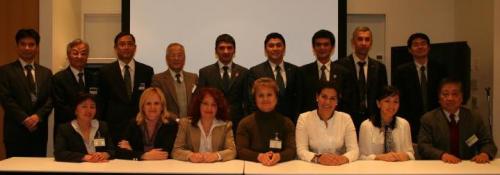
Throughout the course, many companies and organizations cooperated with us by creating an excellent environment to learn and providing considerate and detailed guidance. In response, the participants took quite positive stances not only by asking questions but also by discussing the issues with lecturers and representatives from the companies and organizations. After returning home, the participants intend to make full use of what they learned in Japan: meticulous and carefully crafted Japanese legal systems and environmental standards, the decentralization of authority from the central government to local governments, strict quantification and detection limits, advanced wastewater treatment technology, working efficiency improvement through the effective use of computers and sophisticated analytical equipment, the system for promoting environmental awareness, and information disclosure. As a whole, this shows that the participants highly valued the systems and regulations already established in Japan.
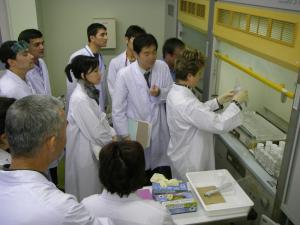
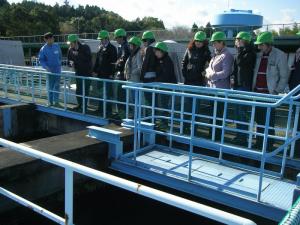
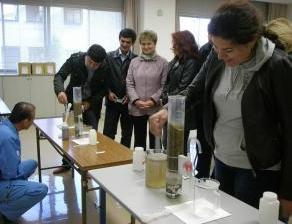
The participants received the impression that Japan is a people-friendly and comfortable society to live in, referring to the strong Japanese sense of responsibility, hardworking attitudes, consideration for others, and the high quality of products and attention to detail.
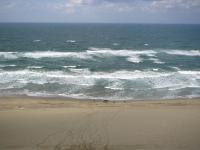
During the over-one-month course, the participants saw the onset of a full-fledged winter in Japan, but according to them the temperature drops to dozens of degrees below zero in their own countries, so they seem to have had no trouble with the cold, saying that “this is just fine”. Some of the male participants even bathed in the sea in November.
They visited some places outside Mie Prefecture, either to study or on other kinds of trips, and were more impressed with the Sea of Japan they saw in Tottori Prefecture than the World Heritage sites in Kyoto. Japan is by no means a large country, but their reactions reminded us that our country is endowed with a lot of nature, which can attract visitors from outside Japan, just like it attracted our participants.
The participants mentioned that they have plenty of work waiting for them back home, since December is the last month of the fiscal year in their workplaces, but we don’t expect them to have any trouble implementing their action plans as well as dealing with their regular activities.
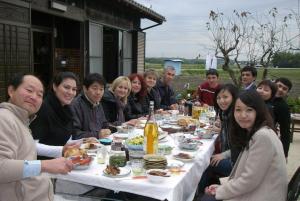
We would very much like to express our gratitude to all the parties involved in the course for the cordial support and cooperation. We would also like to express our gratitude for the continued support of the many organizations and lecturers, who have cooperated with us for eight years in a row to see the organizations, where the participants came from, develop steadily. (Minamikawa)







